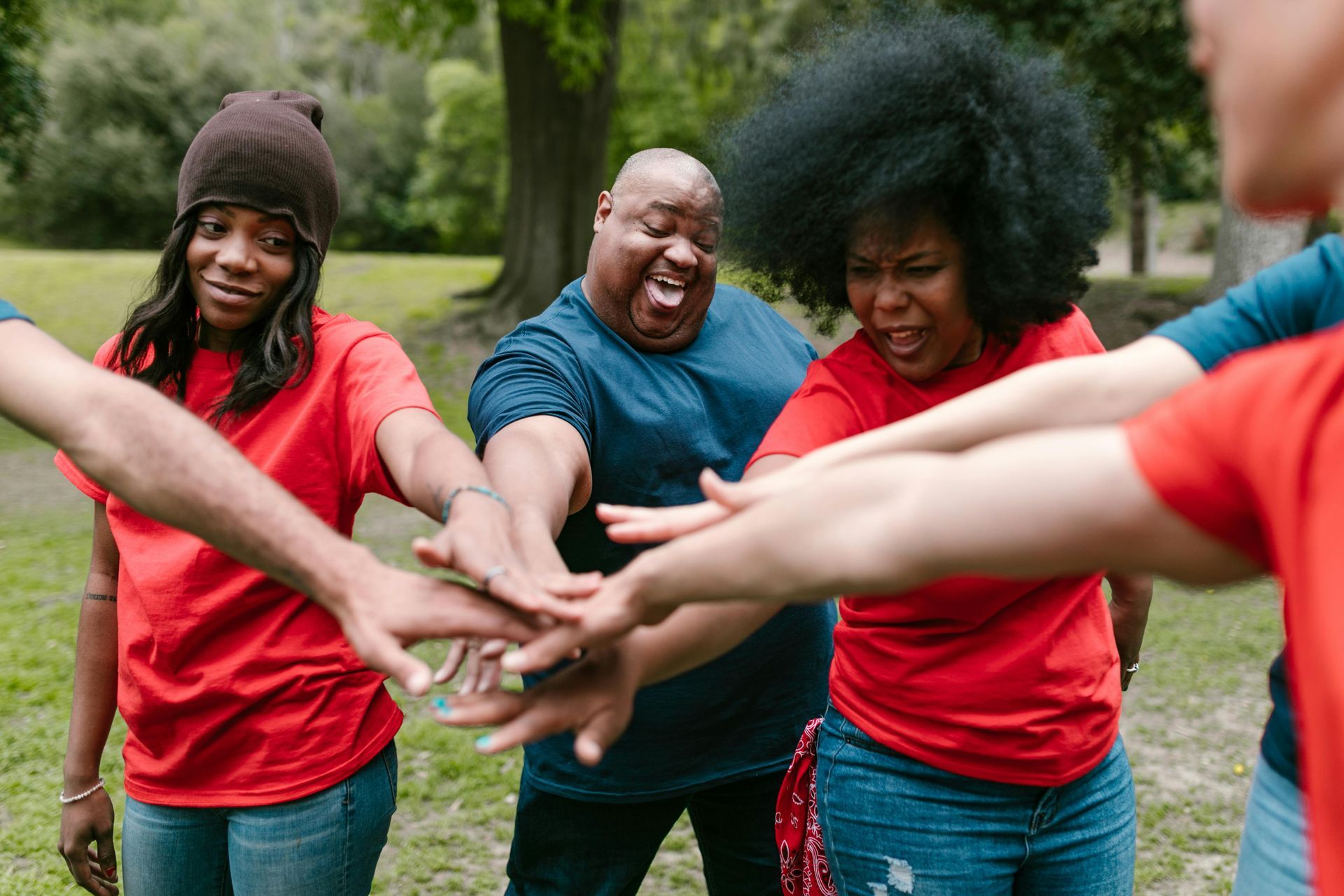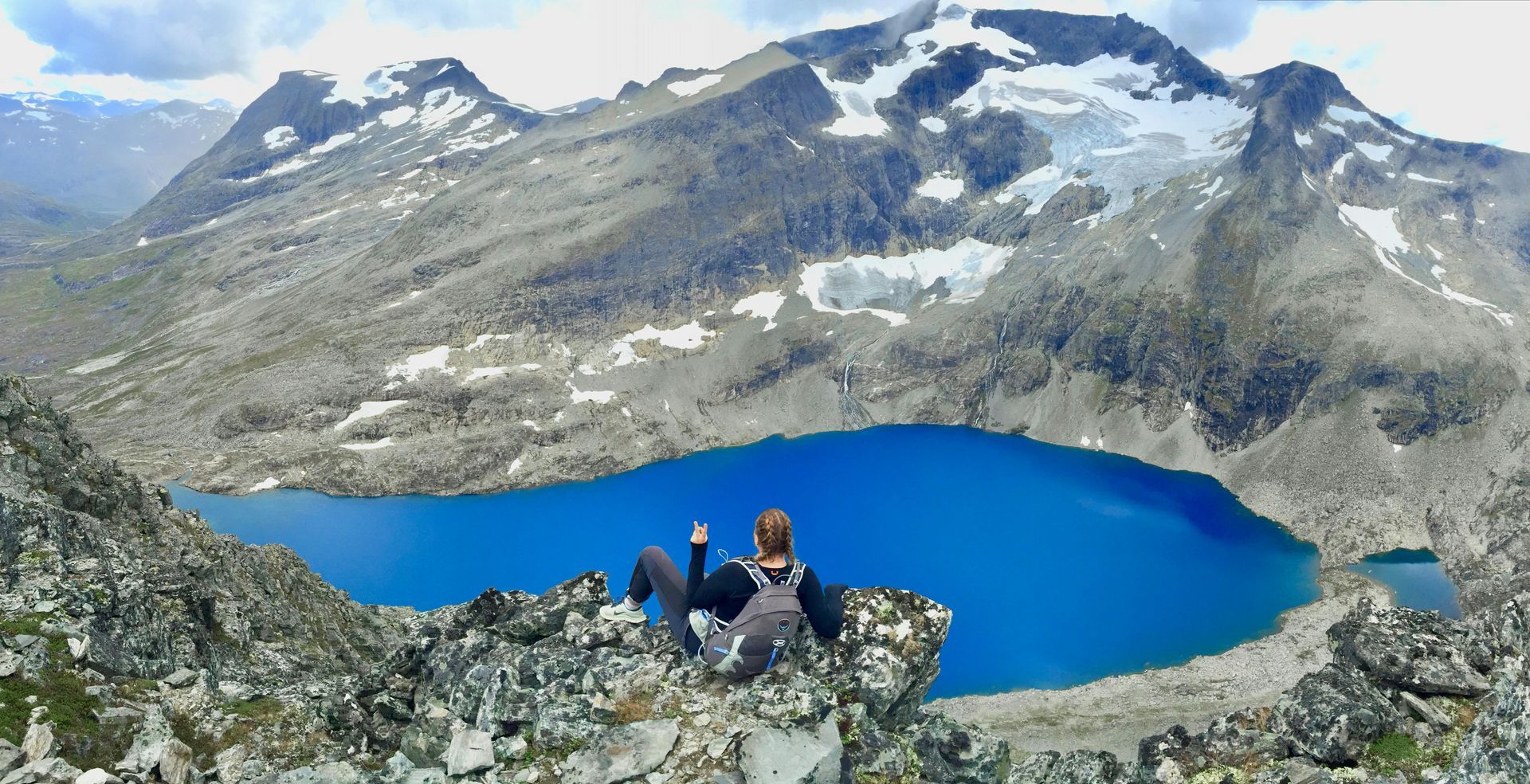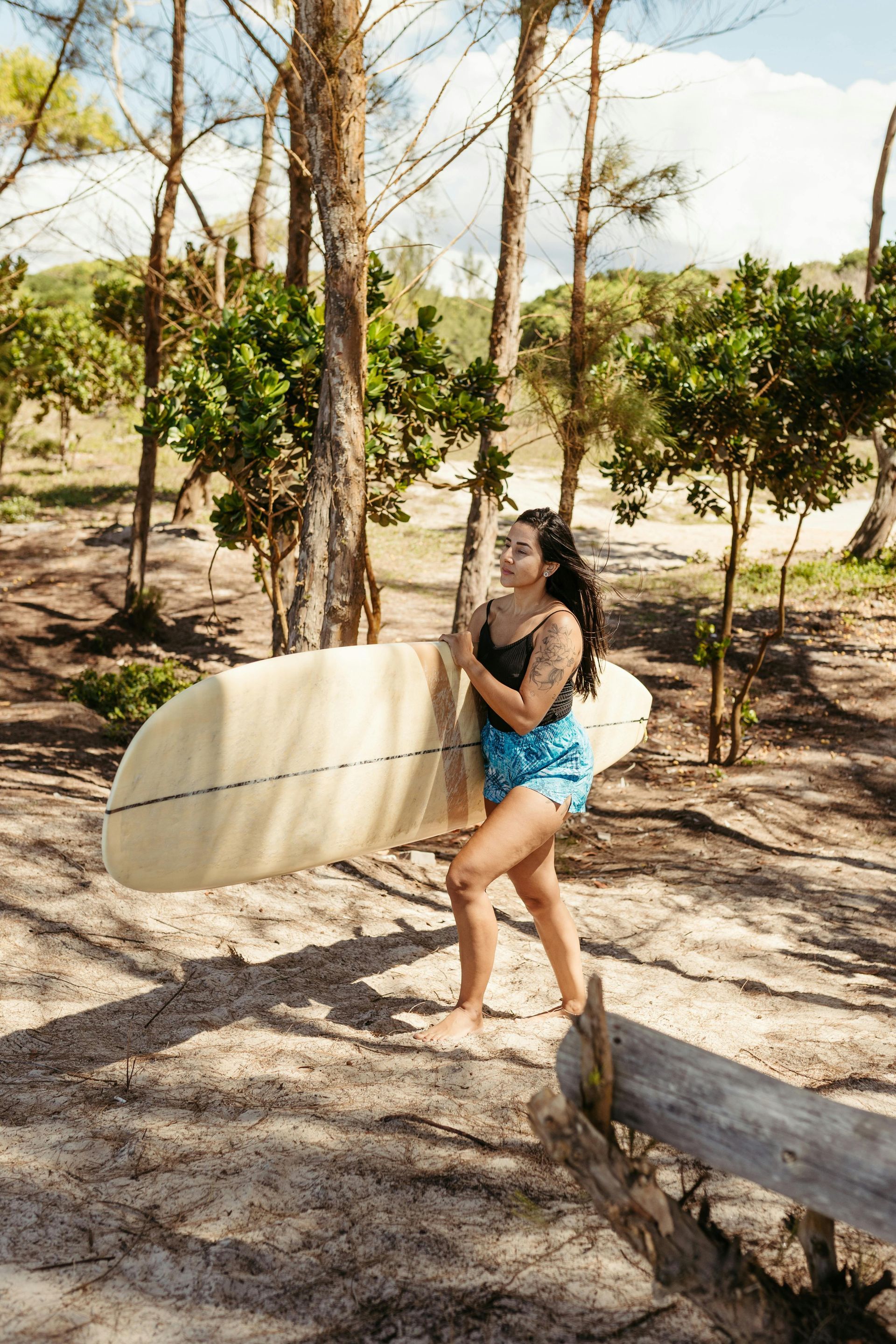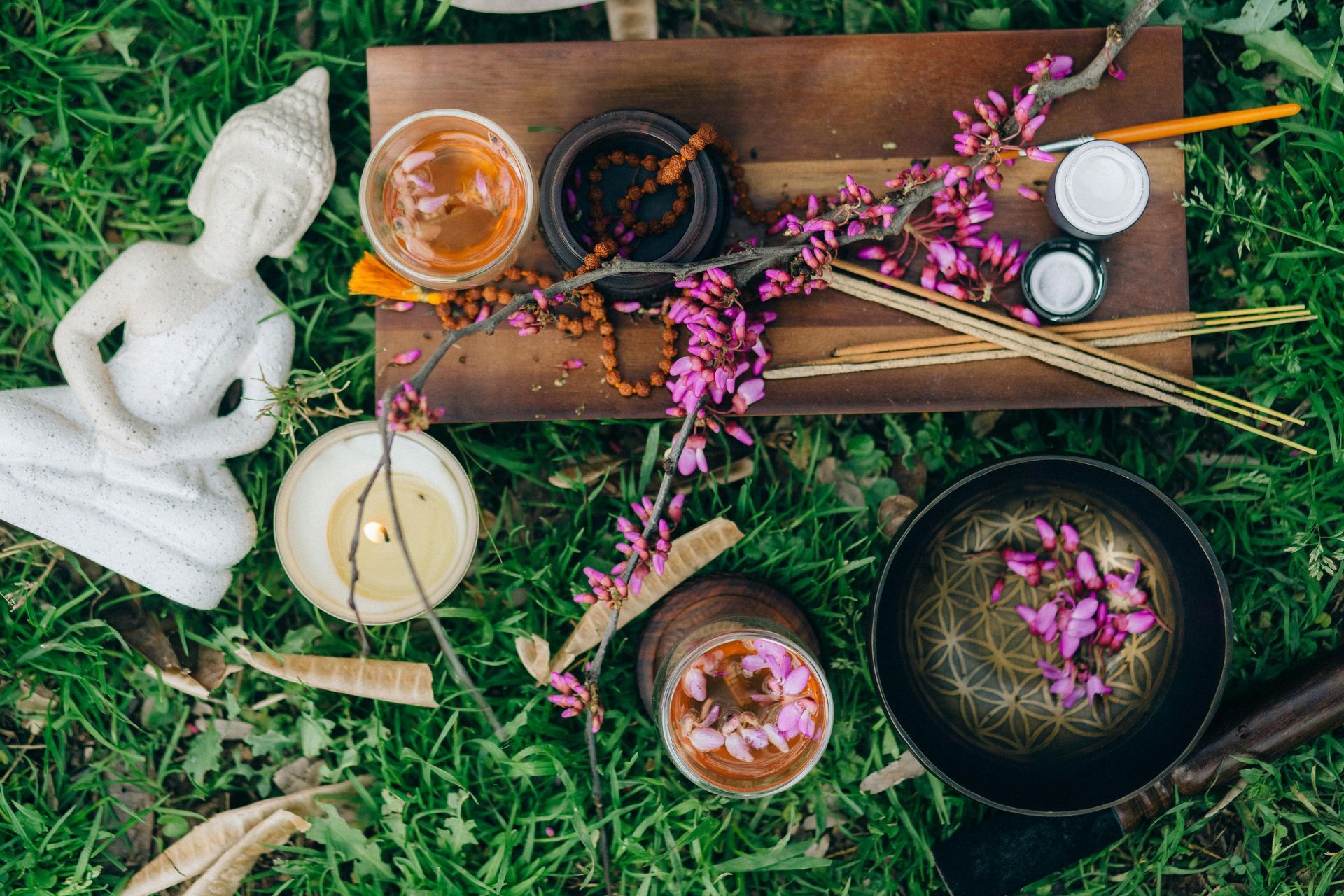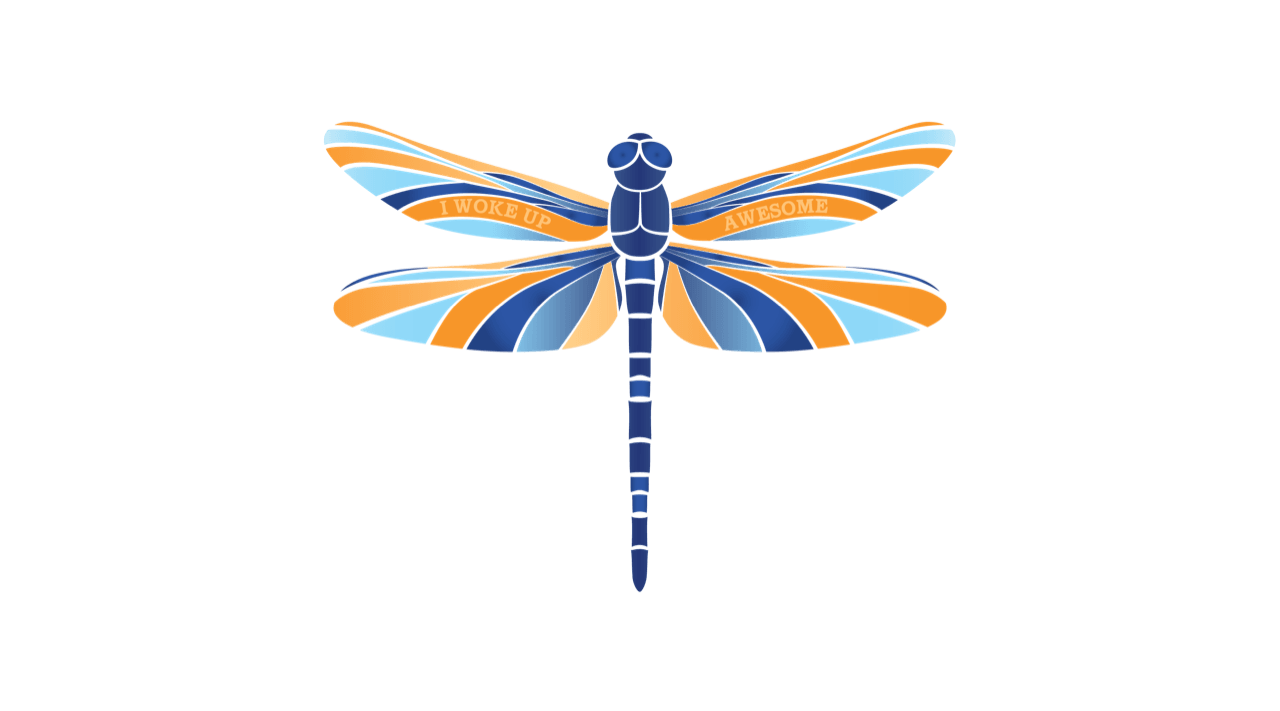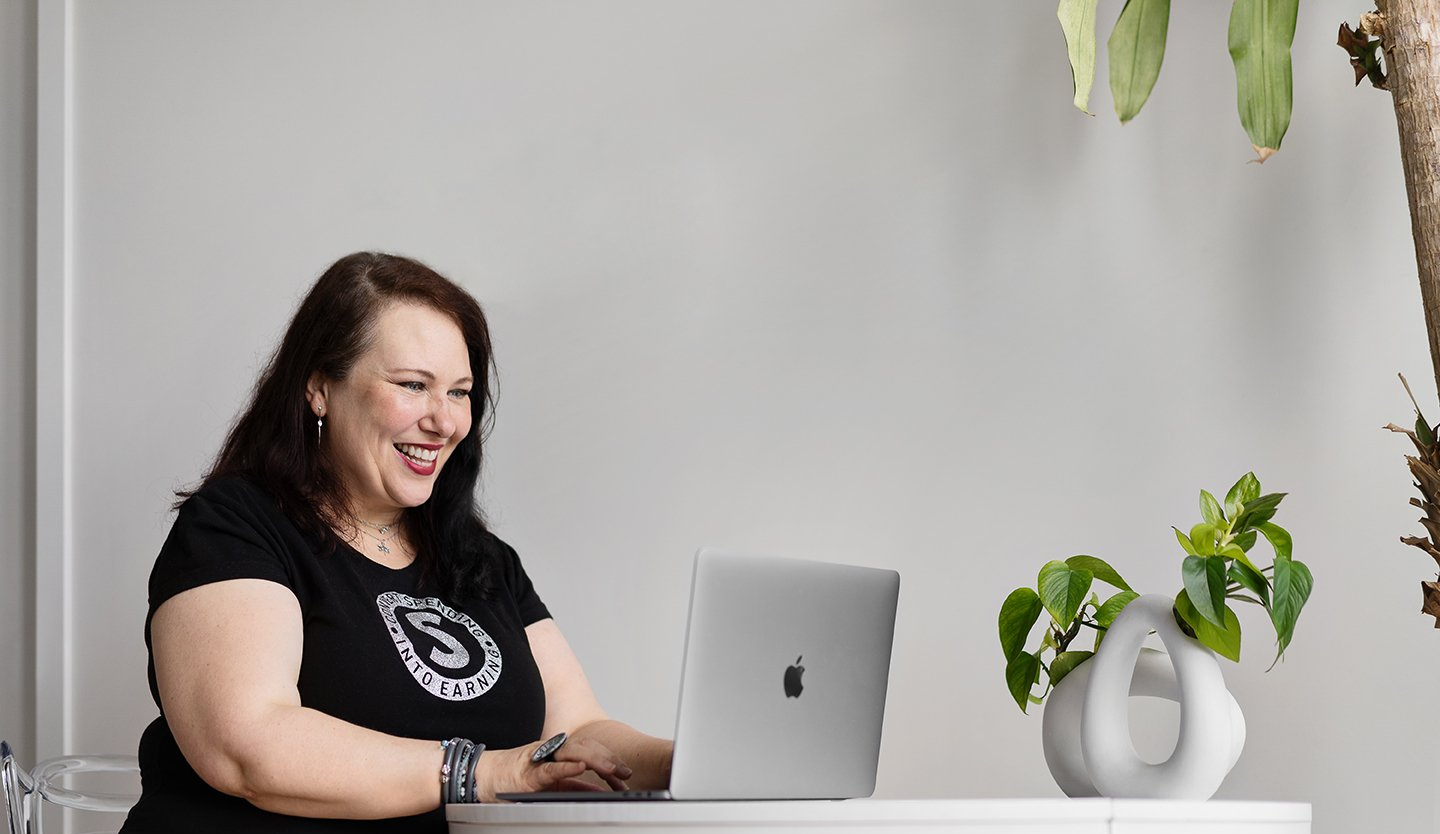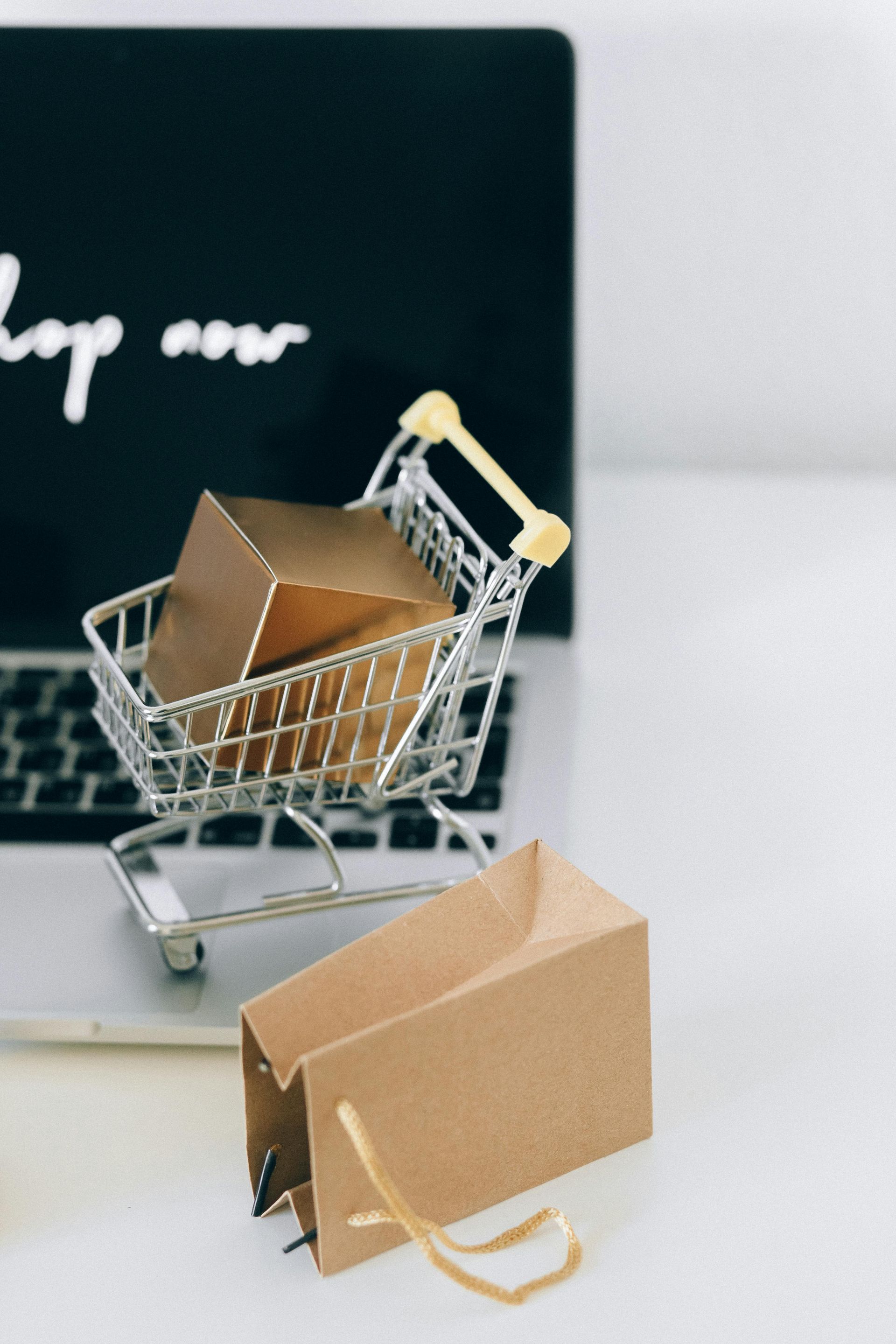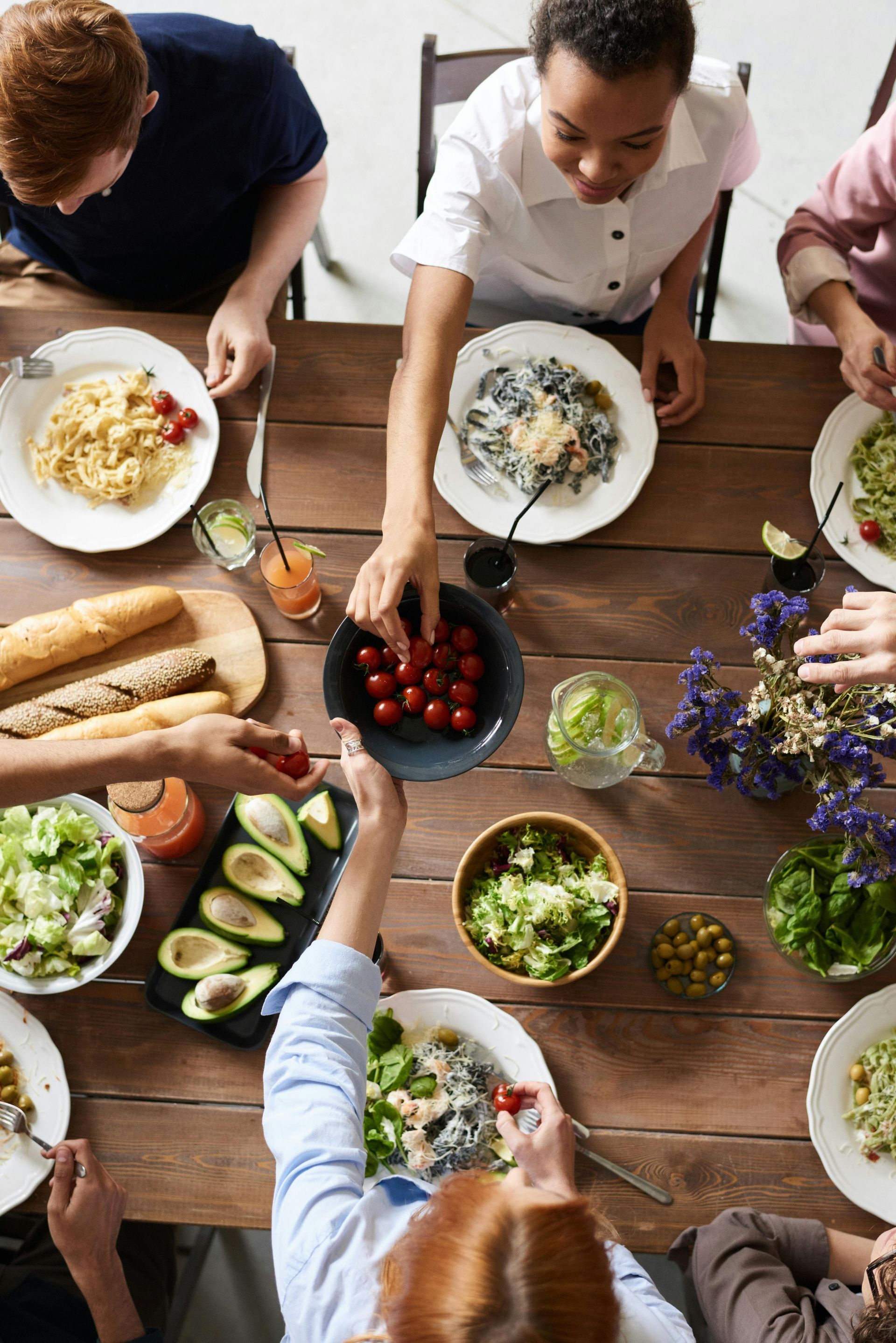This week week met Jacqueline from New Hampshire. Jacqueline was diagnosed with complex regional pain syndrome when she was 21. For the last 4 years she has been using yoga and meditation to cop with it, which has made a huge difference. Jacqueline shares her journey and offers advice to those suffering with chronic pain as well as their loved ones. Jacqueline and her plate are both great reminders that no matter what, we can choose to keep going.
Connect with Jacqueline on Instagram: https://www.instagram.com/jacquelinemf87/ Nominate a plate - https://www.pl8story.com Meet your host - https://www.iwokeupawesome.com Visit Our Sponsors and support future episodes - https://www.iwokeupawesome.com/pl8storypartners.html Subscribe to Trista's PL8STORY Podcast on Apple Podcast ( http://bit.ly/itunespl8story ), Google Podcast, Spotify or your favorite podcast app and access all published episodes
KEPGOIN
[00:00:00] Trista, Host: [00:00:00] Welcome to this week's episode of Trista's PL8STORY (Plate Story) Podcast. I'm Trista Polo from iwokeupawesome.com and I am your host. Each week, we learn the story behind that vanity plate. You know, the one you saw driving down the road... what did it say? What did it mean? Why did they choose it?
Hey there. Welcome. I'm excited to have Jacqueline from New Hampshire to talk about her plate story today. Her license plate is K E P G O I N. And it's Keep Going. Welcome Jacqueline.
Hi, it's great to have you.
Jacqueline: [00:00:37] It's great to be here.
Trista, Host: [00:00:38] Yeah. Tell us the story behind Keep Going.
Jacqueline: [00:00:42] So in 2009, I was diagnosed with complex regional pain syndrome, which is a chronic pain disorder causing severe nerve pain, burning, numbness, tingling, [00:01:00] and it affected my, I was a senior in college at the time, that affected my schooling. And it affected my ability to work and then just the general anxiety of always experiencing pain.
So a lot of, a lot of negative side effects, but early on, I knew it was important to continue to have a positive attitude and not to dwell on the negatives and the things that I was missing out on because of it. So in 2017, I changed my license plate to KEPGOIN in the spirit of, you know, always just continuing to carry on and focus on what's ahead of you. Instead of what's holding you back.
Trista, Host: [00:01:48] Yeah, absolutely. Now chronic pain is a terrible thing to have to deal with because the fact that it's chronic means that it's there hard to manage. Sometimes there's nothing you [00:02:00] can do to have it ever go away. but you've found some ways that you can manage it, deal with it.
I'd love to hear a little about what you do to keep going. Not just mentally, but physically as well.
Jacqueline: [00:02:14] So I've tried so many different treatments. I started off in the very beginning with like 10 different medications all at once, and then started getting injections that were either into my spine or into nerves in my leg.
Some of the medications helped some didn't and some of the injections help and some didn't . Over time I've been able to, I only get injections maybe twice a year now, and I'm only taking two medications. So that's been helpful. In 2017, probably six months before I changed my license plate I had a spinal cord stimulator put in, that helped a lot in the [00:03:00] beginning.
It kind of wore off maybe like a year and a half or two in, but I know a lot of people have success, but those, the biggest thing that's helped me is physical therapy, yoga and meditating. So really helped me to be able to, you know, if I'm in pain, it's getting really bad, just focus on my breathing. Think about something soothing and you know, it doesn't always work. It's not perfect. And sometimes you do have to take medication and that's fine too. But I think that the yoga and meditation has definitely helped.
Trista, Host: [00:03:41] I think it's interesting that you're talking about meditation in addition to the yoga and physical therapy, because that's like your mind doing the work.
Jacqueline: [00:03:49] Yes.
Trista, Host: [00:03:50] How much of the pain would you say is manageable mentally.
[00:04:00] Jacqueline: [00:03:59] Probably, I mean, it depends on how bad it is at the time. So if it's at maybe like a five or a six, I'd say most of, I would say like 80% of it is managed by meditation.
Trista, Host: [00:04:16] Wow.
Jacqueline: [00:04:18] And it doesn't, you know, it doesn't always have to be meditating in that classical sense because there's so many different ways that people can meditate.
You know, like you can, you can meditate in a room, you know, just with music or you can meditate by doing something active. So like a lot of people will find that they meditate while they're coloring. A big example that's used too, and meditation is like, you can do it while doing the dishes. Just on focusing on what you're doing at the time.
So I don't want people to think that you have to be sitting in a room quietly with nothing around you to be meditating. if the, if the pain's at like an eight or a nine, though, I'd say [00:05:00] maybe like 20%, 30% is managed the meditation.
Trista, Host: [00:05:04] And how much of the time are you at that level of pain and living with that
Jacqueline: [00:05:11] now? Yeah. probably only a couple of days a month.
Trista, Host: [00:05:15] Okay. That's great.
Jacqueline: [00:05:17] I've improved a lot in the last, the last three years, which is great.
Trista, Host: [00:05:23] That is great. That's so, so good. And so you attribute that to, physicality of yoga, physical therapy, and then also the mental management and meditation.
Jacqueline: [00:05:34] I think a lot of it has to do with that.
I think part of it too... I saw a new doctor last year and started a new medication. I think that's helped a lot, but I did notice I was getting better even before that. And I would attribute it to the yoga and meditation.
Trista, Host: [00:05:55] That's awesome. Do you have any resources that you could recommend for people who are [00:06:00] dealing with chronic pain that have not tried these kinds of alternative opportunities?
Jacqueline: [00:06:05] YouTube, YouTube has so many guided meditation videos. You can download the app, Calm or Headspace, and that's really helpful, but yeah, I use YouTube a lot and I use it for my yoga videos as well, just because in the beginning, I wasn't comfortable going to a yoga class in case, you know, 10 minutes into it I was, I was going to start hurting. So I just started doing it on YouTube and I still do it today.
Trista, Host: [00:06:34] That's great. Now, do you look for specific meditations or yoga workouts that are for people with chronic pain?
Jacqueline: [00:06:42] I don't though they do... yoga with Adrian on YouTube has a yoga video for chronic pain and she also has back pain, neck pain videos.
She is probably who I use the most. But a lot of times I'll just do you [00:07:00] know, yoga for relaxation. Cause that's usually not going to be too stressful on your body.
Trista, Host: [00:07:07] Yeah, that's great. Now you have the plate, KEPGOING. And I know it's a philosophy of yours. How do you keep going when nothing is helping, you've got the pain, but you also have life to live.
Jacqueline: [00:07:20] it's, it's really hard and. You know, I had a period of time last summer where my, my leg was bothering me. My leg's where all my nerve issues are, so my leg was bothering me, but I was also having migraines that lasted for like three months. And it was really hard. And there were times where I was like, You know, nothing was helping.
And I was like, I don't know how much more of this I can take. And whenever I would do that, my boyfriend would remind me of the license plate, [00:08:00] which was really sweet of him. So, you know, even if I couldn't make sense of it at the time, I was like, okay, I can just, you know, I can just do this for a little while longer.
And then after three months I was like, You know, I've been saying this like every week for the last 12 weeks, maybe I'm going to be okay. And then I got two injections in the back of my head and they helped my migraines and I've only had like maybe 3 since.
But you know, other than him reminding me of the license plate, just sort of focusing on what's good in your life, or, you know, even if you can't find anything what's constant. So that's pro that's it.
Trista, Host: [00:08:50] That's great. But the license plate doesn't just help you. Does it. You get some contact with people who see the plate and give you feedback.
What kind of feedback do you get when [00:09:00] people see your plate?
Jacqueline: [00:09:01] I have had people stop me in parking lots and say how much they love it, how they love the philosophy of it. I have had a friend who was going through a tough time and said that, you know, she had thought of the plate, but even one of my other friends, when she was, she was setting up a library and she had been working for like four hours and just, you know, repetitive tasks and it was like 11:30 at night. She probably only had 45 minutes left to go. And she said that she thought of the license plate and it was like, okay, I can keep doing this for a little bit longer.
Trista, Host: [00:09:38] You can do almost anything for just a little bit,
Jacqueline: [00:09:40] a little bit longer. Yes.
Trista, Host: [00:09:42] And I feel like that's the underlying message of the plate and also everything that you're sharing, which by the way, I really appreciate you sharing your experience, your journey, because the thing about chronic pain is... I actually know somebody who was told, well, it's [00:10:00] chronic. It's nothing you can do about it. She's just going to have to learn to live with being in pain. And for somebody who's dealing with chronic pain, especially when it can be pretty bad...
Jacqueline: [00:10:08] yeah,
Trista, Host: [00:10:09] that's a hard thing to hear, especially from the medical professionals that's supposed to be helping you get better.
So I just really appreciate you sharing your journey. Is there anything, you can share any advice that, for someone who's dealing with chronic pain and has not figured out how to manage it as well as you have?
Jacqueline: [00:10:29] You will one day. I mean, it's incredibly lonely and hard because nobody knows how you feel like nobody.
You can try to explain it to people, but nobody actually knows how you feel. And I would encourage anybody who's new in this journey to reach out to other people, dealing with chronic pain. There are Facebook groups for specific types [00:11:00] of chronic pain issues. I would encourage them to reach out to other people experiencing this, but I would also encourage them to, you know, find one or two things that makes them happy.
And when it gets really bad or when those feelings of anxiety about the pain or, you know, depression about it set in to focus on that. And it's... it's incredibly hard at first because the thing about pain is you often can't ignore it, but, and I had that problem in the beginning, but I think if you just keep at it and keep practicing, it gets easier and easier every day.
Trista, Host: [00:11:42] That's great advice. I'd also like to ask your advice based on something you said. You said that someone who's not always in pain can't possibly understand what it's like and you can't explain it. And what the other person's hearing is. Oh, more pain, more pain. [00:12:00] Oh, you're still in pain.
So, what advice do you have for people that are in relationships with people in pain, like a family member, a spouse, a friend, so that those of us who know people in chronic pain can be more compassionate, more understanding.
Jacqueline: [00:12:19] So I know it's hard to accurately remember a time that you were in pain. But I would try, I would say to, you know, try to think about a time when you were in the worst pain that you've ever been in. And then imagine being like that all the time.
That's the only way I think, you know, I've, I've had friends texts me. One of my friends had, she ended a root canal, then it took her a little while to get into the appointment. So it was like a month of tooth pain, which can be pretty bad. So she texted me and was like, I'm so sorry that you always have to deal with this.
[00:13:00] You know, I had another friend who had a really bad headache one day and she was like, I'm sorry, you deal with this all the time. So it's that, that level of empathy. But a lot of times, you know, if you're not in pain, you, you aren't thinking about it. So I would, I would say to just think back onto a time when you were experiencing pain and know that the person feels like that all the time,
Trista, Host: [00:13:23] It's like my brain can't even get around that concept.
Cause that's one of the things our brain does is it manages to forget the pain when you don't have it, like how women don't remember the pain of childbirth and we're actually programmed...right...not to remember what it's like, but that's great advice. And what would you want to hear like... I'm thinking of the person I know... and when they say "I'm in a lot of pain," I'm not sure how to respond that would make any difference. Like, I'm really sorry to hear that you're in pain is what comes to mind, [00:14:00] but it feels empty. I don't know what it's like. I can't take it away I can't do anything to help.
So what would you want to hear, from someone you love that could make it better or at least let you know that they, are compassionate and empathizing what you're going through.
Jacqueline: [00:14:24] I would, I would just want them to ask, is there anything that I can do for you? It's a lot of times when you're telling somebody that you're in pain, you really just need to share those feelings.
Or like sometimes when I say it I'm, you know, I'm not looking for anything. I'm just more saying it out loud. Sometimes I'm, you know, in certain examples when I'm telling somebody like, I'm sorry, I have to cancel our plans, but I'm really not feeling well. You know, then I would just be looking for" I'm sorry you're feeling that way. It's okay." [00:15:00] And just looking for some understanding, but if that wasn't the situation I would, I'd probably just say, or I'd probably want to hear, is there anything I can do for you usually that answer's no, but, but at least there's a willingness.
Yeah. Other times it's helpful. Just having somebody listen to you.
If you, if you need to vent. Like sometimes you just need, you just need to let that go. And it's helpful to just have someone to listen to you. So I guess it would also be helpful to hear, you know, "Do you want to
Trista, Host: [00:15:34] talk about it?"
Yeah, that's what I was just thinking. Yeah.
Jacqueline: [00:15:36] Yeah. But I, I know there's kind of a reaction to want to apologize. Like "I'm so sorry that you're feeling that way," but I don't think it's necessary. Well, I've just like, I understand that I'm here for you.
Trista, Host: [00:15:53] Yeah. That's great advice. It's helpful to have you share how someone can be more supportive and more loving in a way that it [00:16:00] makes a difference for you.
So that's really helpful. And I I'd love to hear if you have any advice. For people dealing with chronic pain in terms of dealing with medical professionals, medical professionals go through it, especially if they're a chronic pain doctor, all they do all day is see people with chronic pain.
Jacqueline: [00:16:18] Yeah.
Trista, Host: [00:16:19] So you probably have to advocate for yourself.
Jacqueline: [00:16:22] You definitely do need to be an advocate for yourself. I've been lucky to have really good and understanding medical professionals. And the only time that I didn't, I left, I found a new doctor. I know that's not always easy based on where you live.
So I know a lot of people will bring articles in to share with doctors. So a lot of times maybe doctors don't even know themselves about certain treatments. So I would encourage if you encounter that to bring in as much information as you could, [00:17:00] but you know, if somebody is really difficult to deal with, then I would, I would just say, find a new doctor.
Trista, Host: [00:17:10] Yeah, that makes sense. But I agree it's sometimes hard with your insurance and, you know, the available physicians, taking new patients. I mean, there's probably a lot to manage. So having to, Advocate for yourself can probably be quite stressful when you're already dealing with the pain.
Jacqueline: [00:17:28] Yeah. And you're going to the doctor for them to make you feel better.
And you don't want to have to feel like that need to battle them too. But you know, doctors are people as well and they can make mistakes and they don't always have, you know, they see so many patients, they don't always have the available information. I have read a lot of stories about people dealing with difficult doctors.
So it's not uncommon, but I've also read stories where, you know, people went [00:18:00] in with new information, talk to their doctor and, you know, kind of opens their eyes a little bit.
Trista, Host: [00:18:09] That's really great advice. You've been, a really wonderful resource and I appreciate it. Now you have things that you love to do.
I think you live near the beach?
Jacqueline: [00:18:19] I do.
Trista, Host: [00:18:20] Yeah. So tell me a little about, the other sides of you.
Jacqueline: [00:18:26] Well, I do love going to the beach. I'm glad that, you know, they've opened them up with, you know, 50% capacity. It's still something. So I've been a little bit this summer. I really love kayaking. My boyfriend and I have inflatable kayaks. Oh yeah. Which makes it so easy. And we have, you know, tons of ponds and rivers around here. I just got a paddleboard. Cool. so I've been, I've been trying that. It's also inflatable, [00:19:00] making it so much easier to carry and store had.
Just being outside. I love being outside. I love gardening.
Trista, Host: [00:19:09] Yeah. Do you have any favorites of yours? Anything that you enjoy growing most?
Jacqueline: [00:19:16] Right now, I'm really excited about the eggplants and tomatoes that I'm growing. As far as flowers, roses. Nice.
Trista, Host: [00:19:27] My husband has a little mini greenhouse on our deck. And every day he brings me the marigolds and things that are flowering, which is very nice. Like a morning glory, just on my desk. It's nice.
Jacqueline: [00:19:40] I have a ton of eggplants.
Trista, Host: [00:19:42] Better than the eggplants you get in the store.
Jacqueline: [00:19:44] Yeah, they are. They have a lot more flavor to them.
Trista, Host: [00:19:50] That's awesome. And then you also are something of an artist as well. Is that right?
Jacqueline: [00:19:56] Yeah. And that's actually something that's been a really [00:20:00] great outlet when dealing with pain and all the emotions that come with it.
I mean, I'm sort of always been artistic, but I probably got more into it trying to manage the pain. I like painting. Not that I'm very good at it, but I find it soothing, but I also make paper flowers and do calligraphy. And during the quarantine, I got really into doing art on my iPad.
Trista, Host: [00:20:29] Ah, digital art.
Yes. That's a big thing right now.
Jacqueline: [00:20:35] It is.
So it's really just this one app called Procreate. The possibilities are endless. You can do animation on there. I haven't gotten into that yet, but probably will at some point.
Trista, Host: [00:20:49] Awesome. Very cool. Yeah. I, I know there's a lot of that happening on TikTock. A lot of people sharing their digital art.
Jacqueline: [00:20:57] I did look at that. Yeah. [00:21:00] I found a bunch of tutorials on TikTock.
Trista, Host: [00:21:02] Well, did it help you?
Jacqueline: [00:21:04] It did.
Trista, Host: [00:21:05] Oh, good. Okay.
Jacqueline: [00:21:06] It was, I've only been on there a couple of times because it's a little overwhelming.
Trista, Host: [00:21:12] It's a lot. Overwhelming.
Jacqueline: [00:21:14] Instagram is still a lot easier to find things...yeah. But I'll still explore on there.
Trista, Host: [00:21:23] Yeah. That's funny. Well, I really appreciated you sharing your story and, especially your journey with managing your chronic pain. I'm so proud of you for being unstoppable at figuring out how to manage it so it doesn't take over your life. And it sounds like you've done that.
So before we wrap up, I always like to turn the tables and see if you have a question you'd like to ask me.
Jacqueline: [00:21:49] What is the most interesting vanity plate you've encountered?
Trista, Host: [00:21:55] That's such a tough one. Cause they're all so interesting once you hear the [00:22:00] story behind them.
I would have to say that my favorite was when I interviewed the owner of the ELFQUEST license plate.
So the license plate is ELFQUEST. It's somebody in New York and what's cool about it is I was a new podcast. I don't even think I had launched yet. I was still doing my first initial license plate interviews before, you know, getting ready to launch, but through a series of Instagram tagging and, direct messaging, I connected with him and it turned out that he and his wife are the co-creators of a 40 year long independent comic book series called ElfQest.
They have millions of readers. They have a very loyal fan base, and I had the opportunity to interview him before I really even had an audience, which I was really grateful for. An d it was cool to hear their story. They were just inducted [00:23:00] into the hall of fame for, for comic books, last year, about a year ago.
And so that was, that was really cool.
Yeah, and I was super proud of it too, because he's been interviewed for 40 years. Right. So he's heard every question he's been interviewed by every type of interviewer. And I asked him two questions that nobody had ever asked him in 40 years.
So it kind of like solidified my confidence as an interviewer. so only because of that story, can I pick that one?
I, now I'm so aware of license plates and there are so many good ones. There's one, the way it's written, it's actually a swear word upside down. And it's, it's owned by a Jeep driver. Cause you know, Jeeps are known for having that, could have turned over kind of thing. but I haven't interviewed that person.
So I have to pick one that's in the catalog.
Jacqueline: [00:23:59] Are you [00:24:00] good at deciphering license plates ?
Trista, Host: [00:24:02] Terrible at it. I'm terrible at it.
Jacqueline: [00:24:07] My roommate in college was like a wizard deciphering vanity plates. And I would have no idea. It's terrible.
Trista, Host: [00:24:16] I know. I feel like such a dunce when it comes to license plate translation, Yeah, but, but I enjoy the journey. So that's what matters.
Any final thoughts that you'd like to share before we wrap up?
Jacqueline: [00:24:33] I would say that, you know, whether you're dealing with chronic pain or, you know, any type of hard time, it's so important to keep a positive attitude and not get sucked in to the negative side of things and dwelling on it. Like you said, you know, you can keep going for just a little while longer with anything.
Trista, Host: [00:24:59] That's perfect. [00:25:00] That's a perfect way to end. I want to thank you so much for being on and sharing your plate story, and I wish you all the best.
Jacqueline [00:25:07] Thank you so much. I think you're, you know, the concept is so interesting. Love seeing vanity plates and it's, it is really nice to hear the story behind some of them. So thank you for doing this.
Trista, Host: [00:25:19] Absolutely. I appreciate you saying that. Have a great rest of your day.
Jacqueline: [00:25:23] You too.
Trista, Host: [00:25:24] Thank you for joining us for this week's episode of Trista's PL8STORY podcast. Please subscribe to Trista's PL8STORY podcast to get the story behind all those vanity plates, driving with you on the road. And if you would like to nominate the owner of a license plate, including you... Or visit any of our partners and sponsors come and see us www.pl8story.com. That's P L number eight story.com and give us the details.
If you enjoyed this episode, please drop a review and give us a share. I'm Trista Polo wishing you well on the road to your [00:26:00] next adventure.
I Woke Up Awesome Blog

